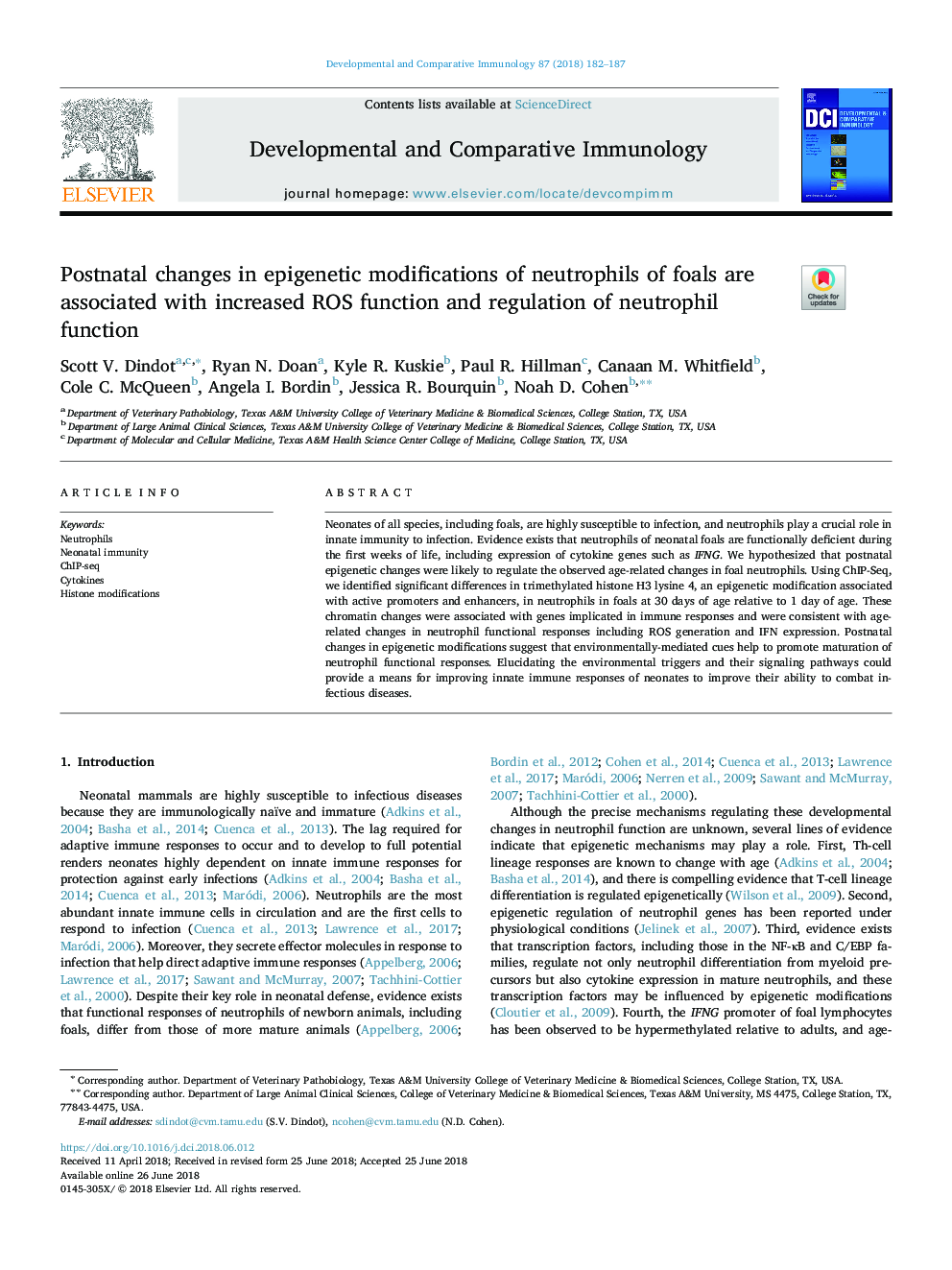| Article ID | Journal | Published Year | Pages | File Type |
|---|---|---|---|---|
| 8497650 | Developmental & Comparative Immunology | 2018 | 6 Pages |
Abstract
Neonates of all species, including foals, are highly susceptible to infection, and neutrophils play a crucial role in innate immunity to infection. Evidence exists that neutrophils of neonatal foals are functionally deficient during the first weeks of life, including expression of cytokine genes such as IFNG. We hypothesized that postnatal epigenetic changes were likely to regulate the observed age-related changes in foal neutrophils. Using ChIP-Seq, we identified significant differences in trimethylated histone H3 lysine 4, an epigenetic modification associated with active promoters and enhancers, in neutrophils in foals at 30 days of age relative to 1 day of age. These chromatin changes were associated with genes implicated in immune responses and were consistent with age-related changes in neutrophil functional responses including ROS generation and IFN expression. Postnatal changes in epigenetic modifications suggest that environmentally-mediated cues help to promote maturation of neutrophil functional responses. Elucidating the environmental triggers and their signaling pathways could provide a means for improving innate immune responses of neonates to improve their ability to combat infectious diseases.
Related Topics
Life Sciences
Biochemistry, Genetics and Molecular Biology
Developmental Biology
Authors
Scott V. Dindot, Ryan N. Doan, Kyle R. Kuskie, Paul R. Hillman, Canaan M. Whitfield, Cole M. McQueen, Angela I. Bordin, Jessica R. Bourquin, Noah D. Cohen,
